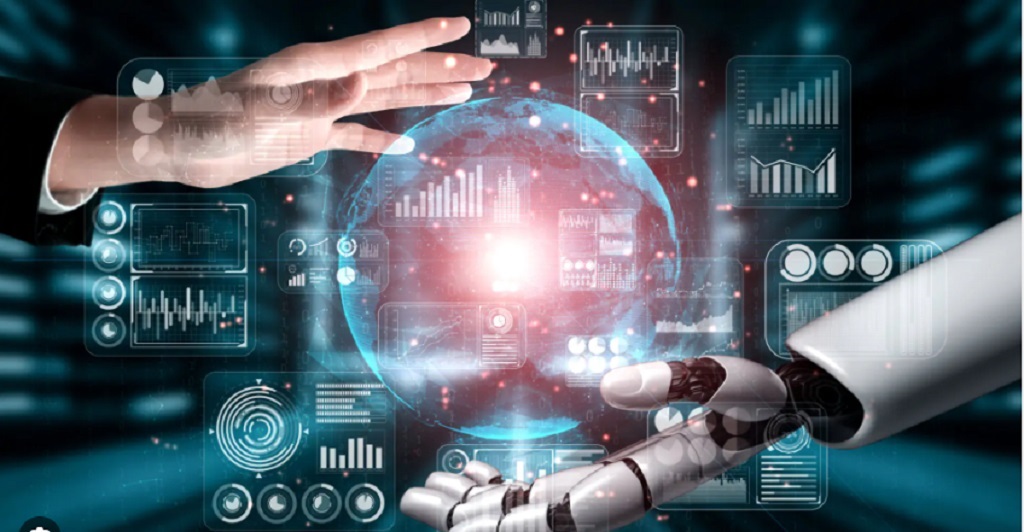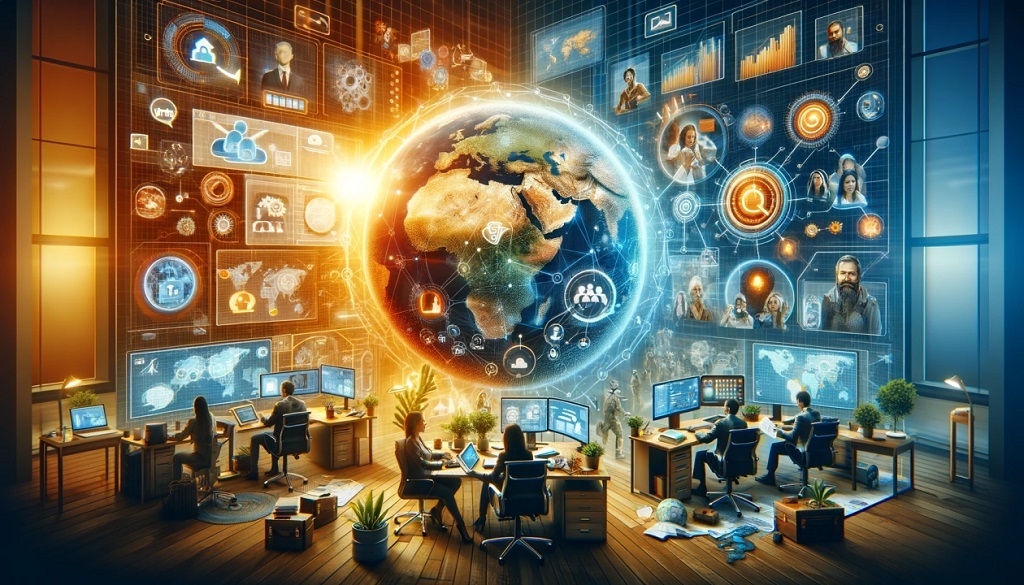The way we work is undergoing a seismic shift. Automation, artificial intelligence (AI), and the rise of remote work are just a few forces driving a digital transformation that’s reshaping the modern workforce. This isn’t some distant future scenario; these changes are happening right now, with profound implications for businesses and employees alike.
The Disruption Engine: Technological Advancements
Technological advancements are at the forefront of this transformation. Here are some key drivers:
- Automation: Repetitive tasks are increasingly being automated, impacting jobs across various sectors. This doesn’t necessarily mean job losses; it means employees will need to adapt and develop new skill sets.
- Artificial Intelligence: AI is rapidly evolving, performing tasks once thought to be exclusively human. While AI won’t replace all jobs, it will undoubtedly change the nature of work, demanding a focus on creativity, problem-solving, and critical thinking.
- Cloud Computing: The rise of cloud-based solutions allows for greater flexibility and accessibility, facilitating remote work and collaboration across geographical boundaries.
- The Internet of Things (IoT): Connecting devices and collecting data in real-time is transforming industries. New job roles will emerge to manage, analyze, and utilize this data for strategic decision-making.
The Rise of the Remote Workforce
Remote work, once a perk, is rapidly becoming the norm. Thanks to advancements in communication technology, employees can now work productively from anywhere with an internet connection. This trend presents both opportunities and challenges for businesses and employees:
- Benefits for Businesses: Reduced office overhead costs, access to a wider talent pool, and potentially higher employee satisfaction are some advantages companies can leverage with a remote workforce.
- Challenges for Businesses: Ensuring effective communication, collaboration, and company culture in a remote setting requires innovative strategies and leadership approaches.
- Benefits for Employees: Greater work-life balance, flexibility in scheduling, and potentially reduced commuting times are some of the benefits employees can enjoy.
- Challenges for Employees: Maintaining focus and motivation in a home environment, managing distractions, and potential feelings of isolation are some challenges remote workers might face.
Adapting and Thriving: Skills for the Future Workforce
The evolving workplace landscape necessitates a shift in the skillsets most valued by employers. Here are some key areas of focus:
- Digital Literacy: Understanding and utilizing technology effectively will be crucial across all industries.
- Critical Thinking and Problem-Solving: The ability to analyze information, identify solutions, and adapt to changing situations will be essential.
- Communication and Collaboration: Effective communication and collaboration, both in-person and virtually, will be paramount for success.
- Lifelong Learning: The pace of change demands a commitment to continuous learning and upskilling to stay relevant in the job market.
The Role of Businesses in the Digital Transformation
Businesses play a crucial role in equipping their employees for the future of work. Here’s what companies can do:
- Invest in Skills Development: Provide training opportunities and resources to help employees develop the skills needed to thrive in the digital workplace.
- Foster a Culture of Learning: Create a culture that encourages continuous learning and exploration of new technologies.
- Embrace Flexible Work Arrangements: Explore remote work options and flexible work schedules to attract and retain talent while fostering a healthy work-life balance for employees.
- Invest in Communication Tools: Equip employees with the necessary tools and technologies for seamless communication and collaboration in a remote or hybrid work environment.

A Collaborative Future: Humans and Machines Working Together
The future of work isn’t about humans being replaced by machines. Instead, it’s about humans and machines working together. AI and automation will take care of repetitive tasks, freeing up human employees to focus on higher-order skills like creative problem-solving, strategic thinking, and human connection.
This human-machine collaboration will unlock new possibilities and create innovative solutions across various industries.
The Future is Now: Embracing the Change
The digital transformation of the workforce isn’t a future event; it’s happening right now. Understanding these trends and proactively developing the necessary skills will be key for both businesses and employees to navigate this era of change and thrive in the future of work.
Here are some additional points to consider:
- The Importance of Soft Skills: While technical skills are important, soft skills like emotional intelligence, creativity, and adaptability will remain valuable assets in the digital age.
- The Rise of the Gig Economy: The gig economy, characterized by short-term contracts and freelance work, is likely to continue growing. This offers flexibility for some but can also lead to job insecurity for others.
- The Importance of Ethical Considerations: As technology advances at an unprecedented pace, ethical considerations regarding data privacy, AI bias, and the future of work itself will become increasingly important. Businesses and governments will need to work together to develop ethical frameworks for the digital workplace.
Related: Unlocking Benefits of Digital Transformation in the Insurance Industry
Conclusion: A Bridge to the Future
The digital transformation of the workforce presents both challenges and opportunities. By embracing lifelong learning, fostering a culture of innovation, and prioritizing human-machine collaboration, we can build a bridge to a future of work that is not only productive but also fulfilling for both businesses and employees. The future of work is here, and it’s time to get ready to navigate it with a spirit of adaptability, continuous learning, and collaboration!





